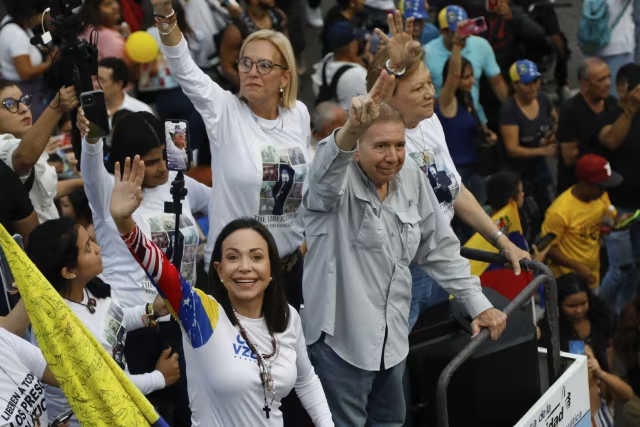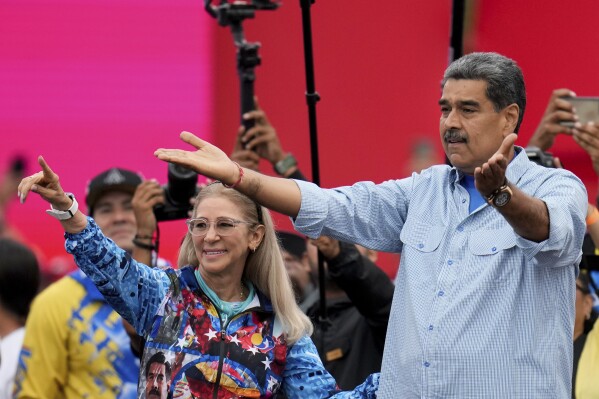Venezuela’s opposition, led by Edmundo Gonzalez and backed by Maria Corina Machado, is mounting a significant challenge to end 25 years of socialist rule in Sunday’s presidential election. The vote pits them against incumbent President Nicolas Maduro, who seeks a third six-year term amid international skepticism over electoral fairness.

Gonzalez, 74, has inherited the opposition mantle after Machado, 56, was barred from holding public office. Their campaign has drawn enthusiastic crowds and support from former ruling party backers, promising change and the potential return of millions of Venezuelan migrants.
However, the election is clouded by uncertainty and concerns over fairness. Maduro’s 2018 reelection is considered fraudulent by the United States and others. Opposition figures and analysts warn of possible underhandedness in the electoral process. Decisions by electoral authorities and arrests of opposition campaign staff have raised concerns about obstacles to a fair vote.
The opposition has urged voters to cast ballots early and maintain a presence at polling stations until they close. They’ve also called on the military to respect the election results, a crucial factor given the armed forces’ long-standing support for Maduro and his predecessor, Hugo Chavez.
Maduro, 61, has confidently defended Venezuela’s electoral system as the world’s most transparent. However, his warnings of a “bloodbath” if he loses have been rejected by Latin American counterparts and add to the tense atmosphere surrounding the vote.
Maduro’s government has presided over an economic collapse and the migration of about a third of the population. U.S., EU, and other sanctions have further crippled Venezuela’s struggling oil industry. Of the nearly 8 million Venezuelans abroad, fewer than 68,000 are registered to vote, with some opting to return home to participate.

Gonzalez promises change that could bring migrants home, while Maduro pledges peace and economic growth less dependent on oil. Some former Latin American presidents were reportedly denied entry to observe the election, though Venezuela denies closing its airspace. The United States has indicated a willingness to calibrate its sanctions policy depending on the election’s outcome.
The election has sparked hope among some Venezuelans for change. “We want to come home, but to a free Venezuela, thriving and prosperous,” said Maritza Quemba, a 64-year-old seamstress who returned from Colombia to vote.
Meanwhile, Maduro maintains a base of support, particularly among public sector employees. Noris Rojas, 70, a retired teacher, expressed her loyalty: “Maduro is a man who has shown spiritual strength and has been loyal to Chavez’s project.”
As Venezuela prepares for this pivotal election, the world watches closely. The results, expected Sunday night or in the following days, could reshape the country’s political landscape and have significant implications for its economic future and international relations. Polls will be open between 6 a.m. to 6 p.m. local time on Sunday, with Venezuela’s attorney general calling for a peaceful electoral process and denying claims of political persecution or the holding of political prisoners.
apnews.com



